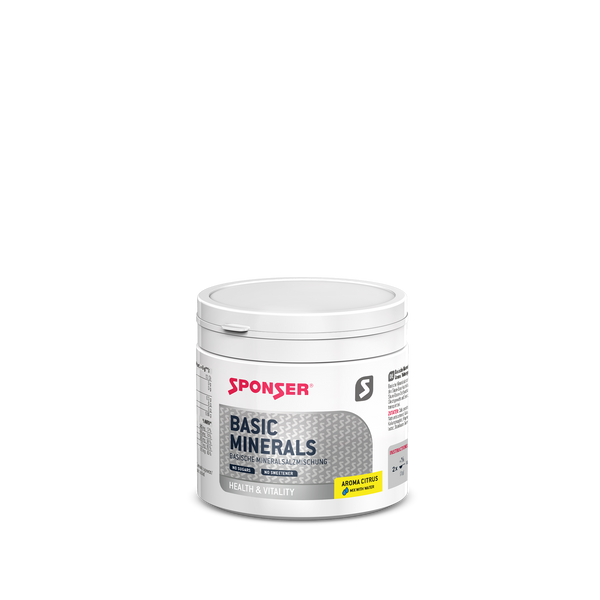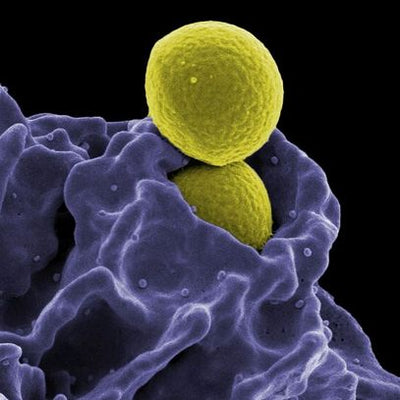
Prevent acidosis and maintain acid-base balance
Those who want to stay healthy in the long term pay attention to their acid-base balance in their diet. Modern eating habits with lots of cereals, sugar, meat, but also alcohol and coffee place a high acid load on the metabolism. But lifestyle factors such as lack of exercise, insufficient fluid intake or extreme physical strain can also have a negative influence on the acid-base balance.
An alkaline surplus diet is generally recommended because it comes with many accompanying advantages, such as a high intake of antioxidants from vegetables and valuable minerals, which have a positive effect on bone mineral stores. Alkaline mineral supplements can be used to supplement your diet in this respect, especially in phases of increased demand, but they cannot replace it.
People who eat a balanced and varied diet - with healthy fats, sufficient protein, lots of vegetables and fruits - generally do not need any further dietary measures to regulate the alkaline balance. Not least because the body has regulatory mechanisms that maintain the acid-base balance.
BASIC MINERALS
SPONSER® recommends BASIC MINERALS as a basic mineral product. The acid-buffering mineral salt blend contains a balanced combination of alkaline mineral salts and helps to harmonize the acid-base balance. With calcium, magnesium, zinc and iron. Without added sugar and lactose-free.
Background knowledge
The pH value is a parameter of the acidity or alkalinity, respectively, of a solution. The lower the pH value, the more acidic the solution. In medicine and nutrition, the pH value of the blood is of importance, which is about 7.4 in healthy people. However, pH values in blood or urine, which are often cited in studies, are only «intermediate markers» and say nothing about effective health benefits. A substantial increase of pH values can also be observed, for example, grace to high vegetable consumption (Welch, 2008). Another study also puts the significance of urine pH into perspective. The authors show that the metabolism of acids in the body does not depend solely on the amount of dietary acid load (Poupin, 2012).
Related articles
on » health
on » science
Literature
Welch et al. (2008): Urine pH is an indicator of dietary acid-base load, fruit and vegetables and meat intakes: results from the European Prospective Investigation into Cancer and Nutrition (EPIC)-Norfolk population study. Br J Nut. 2008, 99: 1335-1343.
Poupin et al. (2012): Impact of the diet on net endogenous acid production and acid–base balance. Clinical Nutrition Volume 31, Issue 3, June 2012, Pages 313-321.
Author: Remo Jutzeler
Head R&D SPONSER SPORT FOOD
Ing. Applied Food Sciences UAS
MAS Nutrition & Health ETHZ



















